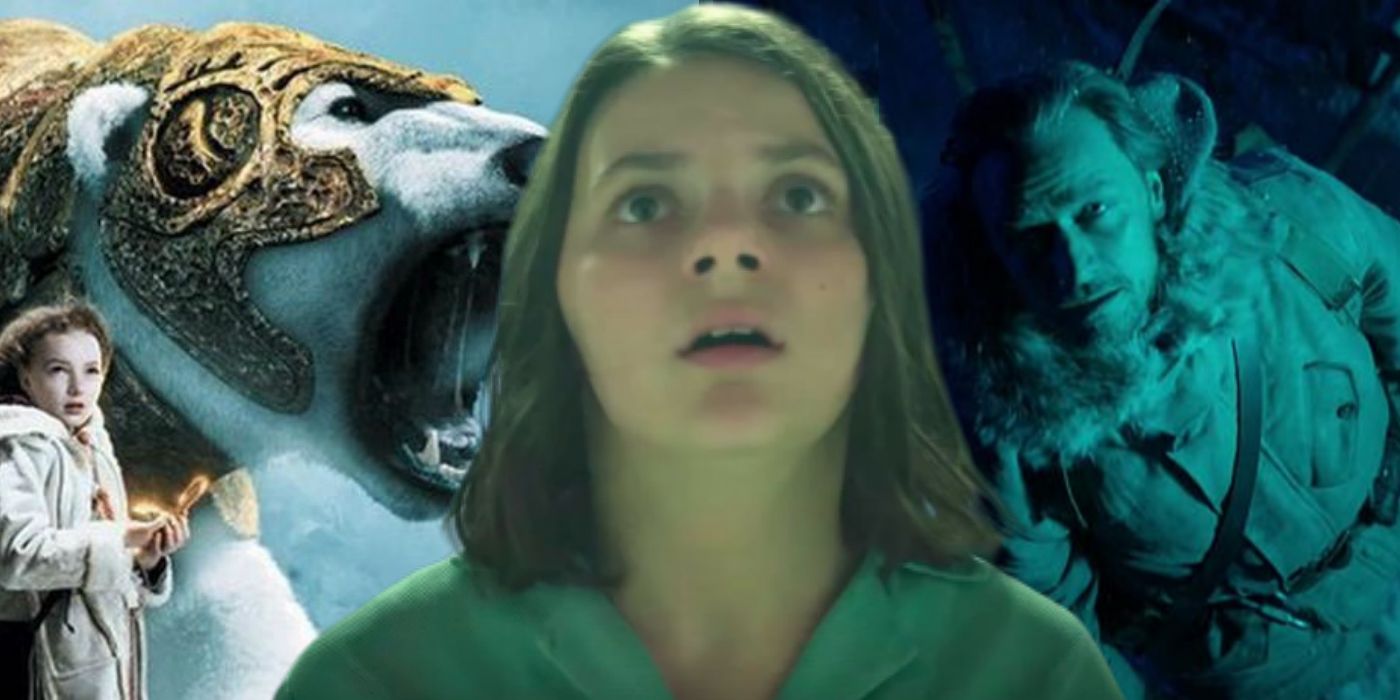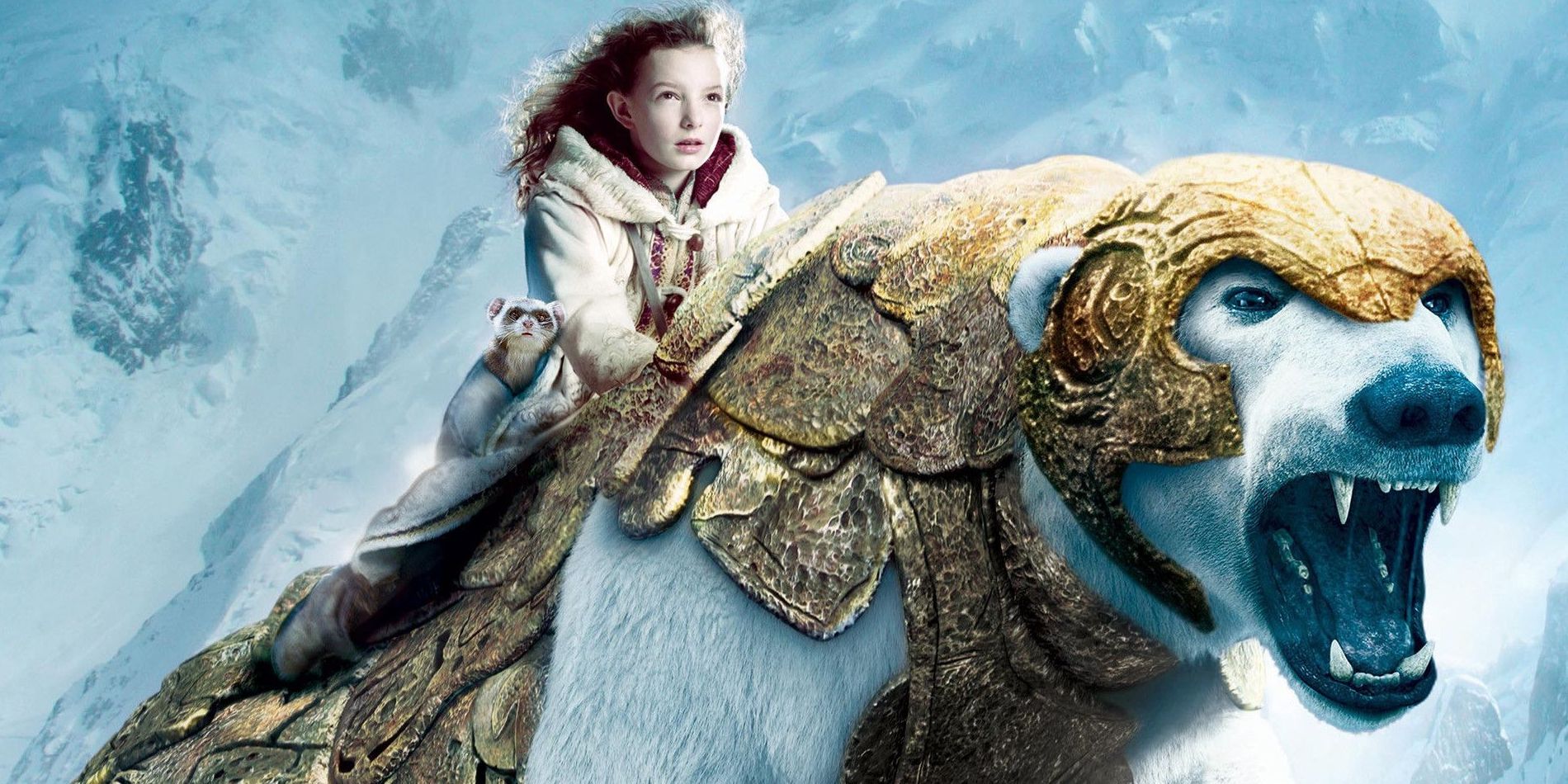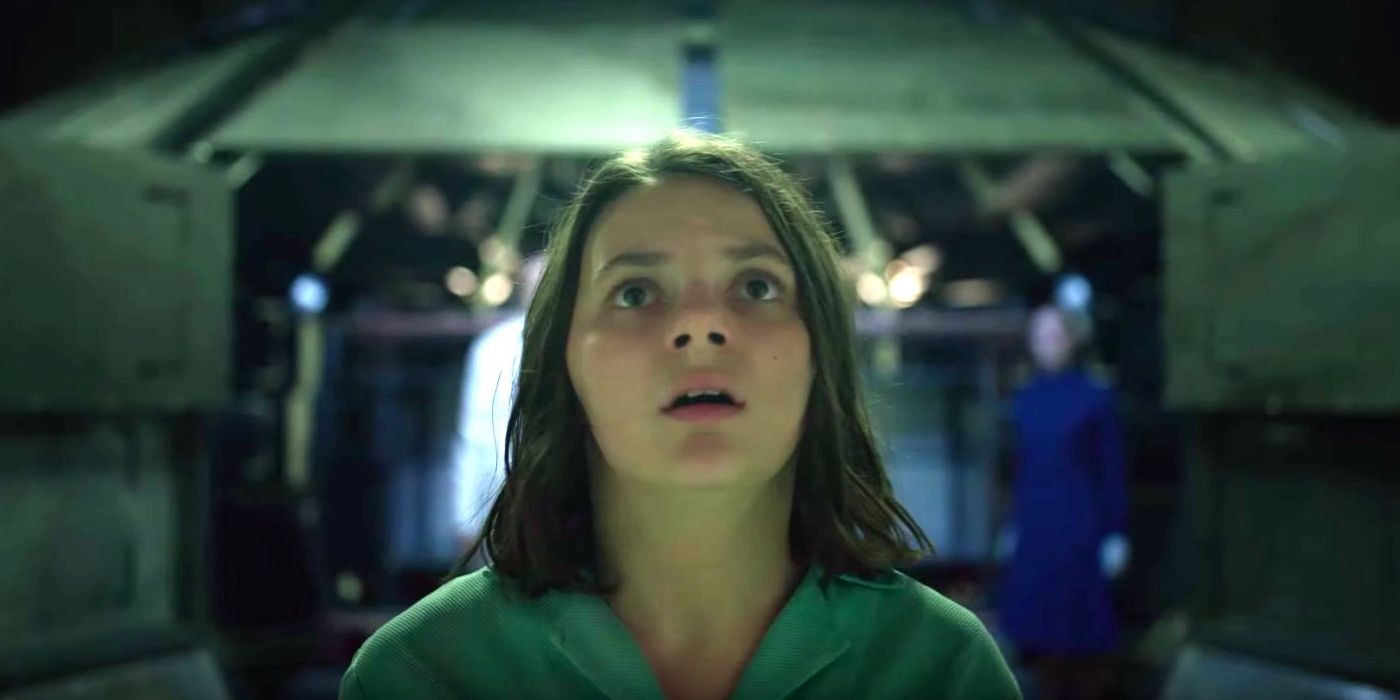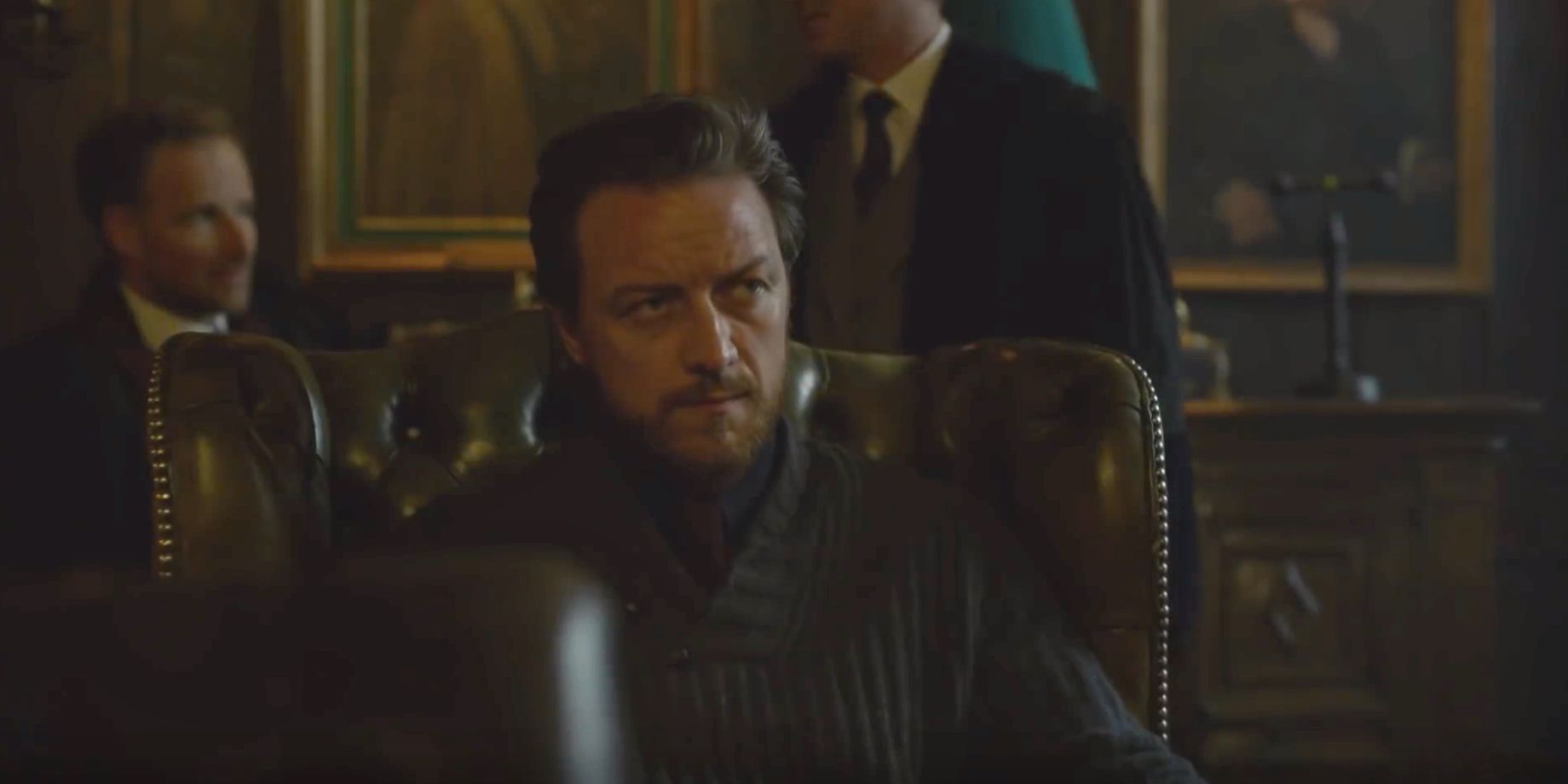HBO's take on His Dark Materials looks great so far, but the TV show needs to make sure it avoids making the same mistakes that plagued the movie version, The Golden Compass. The series, a co-production between HBO and BBC, will air its eight-episode first season later this year, with expectations high and the show already renewed for season 2 as well.
Based on Philip Pullman's epic trilogy - made up of Northern Lights, The Subtle Knife, and The Amber Spyglass - His Dark Materials will take viewers into a parallel version of our own world. Here, humans are accompanied by daemons: animals that are a physical manifestation of a person's soul. The story follows Lyra and her daemon, Pantalaimon, as she searches for her missing friend and gets swept up in a much wider mystery surrounding something known as Dust.
With armored polar bears, witches, and a magical adventure at its heart, alongside some searing religious commentary, His Dark Materials should be well-equipped for a big adaptation. That was the plan in 2007 when The Golden Compass was first released, but the movie failed both critically and commercially. Twelve years on, it's time to try again, this time on television, but HBO would do well to remember just how it went wrong for the movie. Luckily, avoiding those same mistakes should be a lot easier now.
How The Golden Compass Went So Wrong
The Golden Compass seemed to have all the ingredients necessary to be a smash hit at the box office. With its brilliant source material, a story that has appeal for adults and children alike, and coming out when the Harry Potter series was in full swing, it's easy to see why New Line Cinema had high hopes. They were matched by fans, especially as the movie had an estimated budget of $180 million, necessary to do those armored bears justice, and an incredible cast, led by Nicole Kidman, Daniel Craig, and Dakota Blue Richards.
The problem certainly wasn’t with the cast. If there’s a saving grace to the movie, it’s those performances, with Kidman and Richards, in particular, nailing their characters. It wasn’t a case of CGI dragging it down either. Instead, it was one of story, adaptation choices, and shying away from the book’s biggest (and most important) themes. His Dark Materials is defined, at least in part, by its attitude towards religion. It's about the rejection of this and abuses of power by certain groups, which is most directly referenced by the Magisterium. A powerful organization, they represent the systematic abused carried out by the Catholic Church. It's this underlying theme that not only helps the trilogy stand out from the crowd, but gives it so much of its soul too. And, given the Magisterium is the overarching villain of the piece, this created difficulties for the movie studio, for fear of a backlash from powerful religious groups.
Ultimately, The Golden Compass played it safe in this regard, toning down the book’s more outspoken and controversial elements. While it's still possible to make the connection between the Magisterium and Catholicism, the film strips it back as a more overarching representation of all dogmatic groups, and avoids referencing religion and God. This middle-ground approach didn't please anyone. Fans of the book and anti-censorship groups were annoyed that the studio was quite clearing sanitizing these elements to appease the church, and Catholic organizations were still unhappy, with a number of them calling for the film to be boycotted. With neither side on board, the film took just $372 million against its mammoth budget.
It's the religion that gets the most attention, but it wasn’t even The Golden Compass' biggest problem. Sure, it maybe affected its gross more, but its quality was more greatly impacted by attempting to make this as family-friendly as possible. New Line Cinema, despite producing Lord of the Rings, demanded the film be cut from its likely three-hour runtime (based upon Chris Weitz's initial script), somehow getting it under two hours. On top of that, some of the violence - such as the fight between the bears - was toned down, the mystery was spelled out, and the ending was lopped-off, to be saved for the sequel and to give to a happier finale. There were directorial changes - Weitz was replaced by Anand Tucker, and then later returned - and plenty of studio interference, all of which resulted in a film that had roughly the same story as the books, but none of the magic. The intrigue became exposition; the clever allegory and slow-build were simplified and rushed through. Unsurprisingly, a sequel never materialized.
HBO's His Dark Materials Needn't Be Worried About Offending Religious Groups
By stripping away its criticisms of religion, The Golden Compass lost much of the bite that makes Pullman's novels so fascinating. It was done because of fears it would make the film financially unviable in the U.S. if it had such overt religious messages, but that's something HBO doesn't have to worry about with His Dark Materials.
Not only does the failure of The Golden Compass prove that what really matters is getting the adaptation right, but HBO doesn't have the same pressures facing them as a movie studio. Yes, they do need people to tune in to see their product, but as a premium cable channel it's far less exposed to being damaged by outside groups. What matters to HBO is having subscribers, and if anyone is subscribed to the network - which has built its reputation on sex and violence-filled prestige dramas - they're not likely to be outraged by a critique of religion.
If anything, controversy is welcomed by HBO. It's known for pushing the boundaries of television and breaking taboos, in which case attacking the Catholic Church isn't going to seem like such a big deal. It does still need to be family-friendly, because the show will be aiming to appeal to audiences of all ages, but the books themselves prove that doesn't mean cutting the religious aspects. HBO, and the BBC alongside it, can embrace these with all the freedom necessary, giving them a much stronger platform to build His Dark Materials upon.
His Dark Materials' Story Is Much Better Suited To TV
Coming in at just a shade under 400 pages, Pullman's Northern Lights isn't a sprawling epic in the fashion of, say, George R.R. Martin's A Game Of Thrones, but it still needs more time and care than a 113-minute movie can offer in order to do it justice. It should have plenty of that at HBO, with the first season set to be made up of eight episodes, each roughly around one hour in length. With quadruple the runtime of The Golden Compass, the first season of His Dark Materials can cover every page of Northern Lights and then some.
It's not just a matter of minutes, because you could just make a longer movie, but His Dark Materials feels better suited to the sort of long-form storytelling allowed by television. As Lyra makes her way through the world - beginning in Oxford, with the young girl (now played by Dafne Keen) running wild around Jordan College, and then slowly learning the truth about Lord Asriel (James McAvoy) and Mrs. Coulter (Ruth Wilson), and more about the mysterious Dust, before heading off on a more global adventure - the pieces are very episodic. A whole hour can be devoted to building the world and Lyra as a character. The fight between Iorek and Iofur can become a jaw-dropping action set-piece like something out of Game Of Thrones. You can end on cliffhangers around Roger's disappearance, the truth about Lyra, and the children's escape from Bolvangar. It creates a sense of momentum that it can escalate week-after-week, with plenty of talking points from each installment, while allowing the central mysteries to unfold more organically and give the audience time to actually piece things together.
Best of all, it can actually have a true ending. The Golden Compass' decision to cut-off the final few chapters of Northern Lights didn't just add to how rushed it felt, but robbed the film - and what was then a potential series - of one of its most emotionally devastating yet important moments. It also directly avoids the actually great setup for a sequel too. HBO's version looks set to include this - thanks to that shot of Lord Asriel underneath the Aurora Borealis with an empty cage beside him in the trailer - and that means fans will be desperate to return for season 2. His Dark Materials is perfectly built to be a great TV show, all HBO needs to do is read its alethiometer and follow where it leads.




